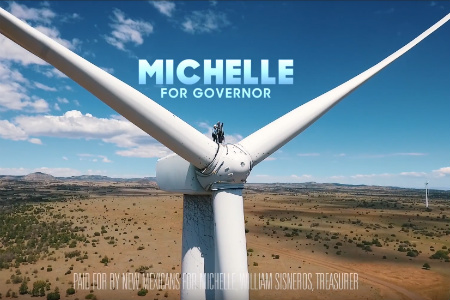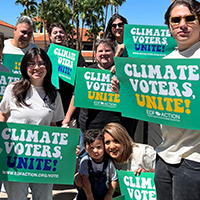Gary Hart used to say “Washington is always last to get the news.” The beltway crowd was certainly caught flat footed by the call for change in the 2016 election. More recently, House Republicans were caught off guard by the sudden change of political mood around health care—the dominate subject of Democratic political ads this cycle. For politicians looking to ride the next political wave—lest they become drowned by it—they should look at building political swell around the issue of climate change.
The political landscape changes more quickly than beltway politicos like to admit. In 2010, after all, Republicans won an astonishing 63 House seats by running against Obamacare. Yet, just eight years later Democrats won the House by the largest midterm vote margin in history, running primarily on the issue of health care. What was seen as a political liability eight years ago, turned into a political advantage just three election cycles later.
Climate change has followed a similar trend. Political consultants used to warn that voters didn’t care about what they considered a distant threat, if they considered it at all. But this year, while climate change didn’t dominate political advertising, it was widely discussed by candidates and appeared to be one of the decisive issues in several close races.
Successful candidates for governors, notably Michelle Lujan Grisham in New Mexico, ran on a strong clean energy platform; several House Democratic candidates like Sean Casten ran aggressively on the issue; and, even the House Republican campaign arm got into the act, attacking a Democratic candidate for Congress over a rather exaggerated tie to coal. All of these examples show the politics of climate change are not what they once were.
The fact is more and more Americans are concerned about climate change. A recent Monmouth poll showed that a majority of Americans believe climate change is a “very serious problem,” including two-thirds of those aged 18 to 34. Polling we worked on with LCV Victory Fund this year showed the political salience of these issues.
In fact, after action polling, showed environmental issues to be even more of a priority in several key elections than many of the traditional issues such as jobs and schools (!). Some races, decided by a few thousand, or even a few hundred votes, featured candidates battling over the issue.
In addition to relevance on the campaign trail, climate change has dominated much of the post-election activity, with youth protests on Capitol Hill, new policy ideas from freshman Members of Congress, legislation to hold the current administration to task and even bipartisan climate legislation. Even those of us who focus on climate issues have been surprised that it has generated more talk, energy, activism than any policy issue before the incoming Congress.
This is welcome news as we are long overdue for policy progress on climate change. Uncertain politics has resulted in a failure by Congress to act on this critical issue.
Voters, however, are ready to move toward a solution and politicians need to have a plan of action or they need to watch out. The combination of energy from young voters and real concern from voters across the country is creating a highly combustible mix that could ignite progress on the issue, or a political explosion in 2020.




